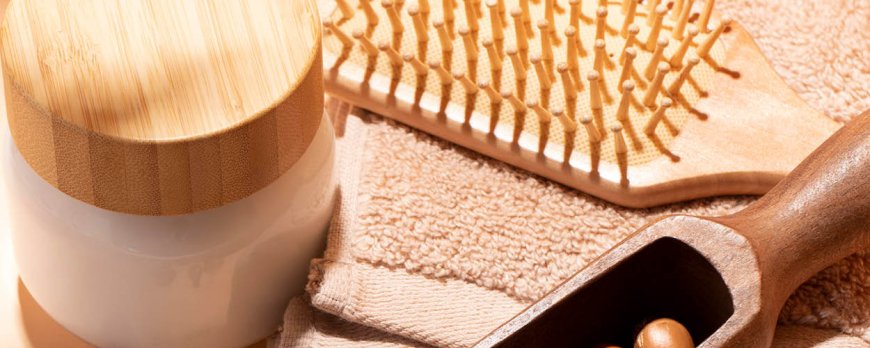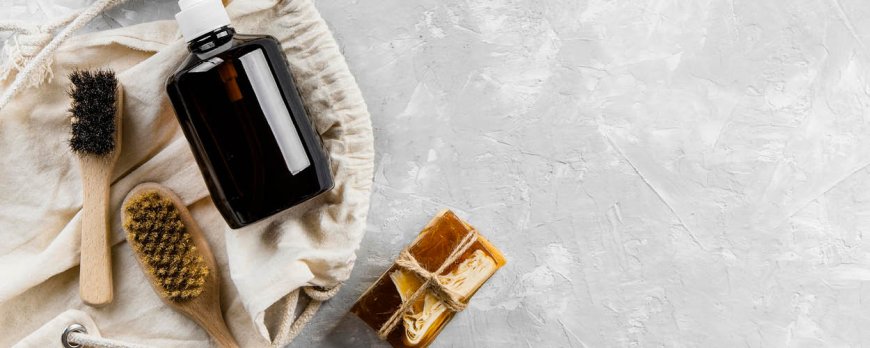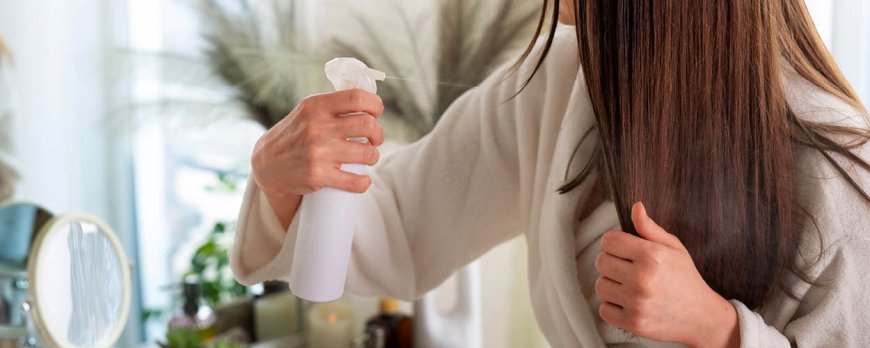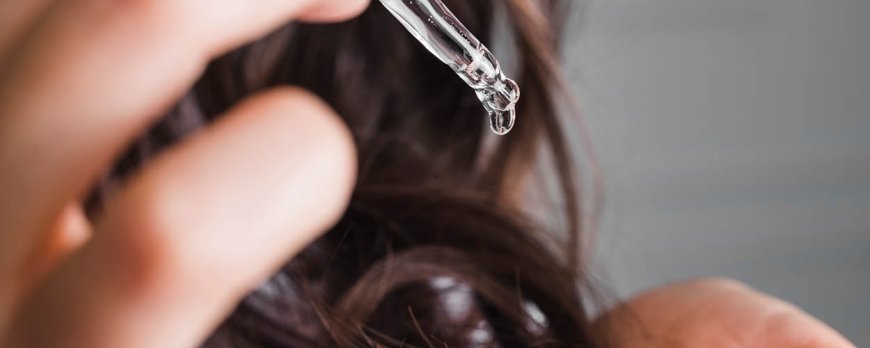Should I Take Biotin for Hair Growth?
'Should I take biotin for hair growth?' Explore the potential benefits and risks, backed by scientific research. Get the facts before making your decision.

Should I Take Biotin for Hair Growth?
If you're wondering whether you should take biotin for hair growth, it's important to consider the facts before making your decision. Biotin supplements and biotin-added hair products are often marketed for their supposed benefits in promoting hair growth and preventing hair loss. However, there is limited evidence to support the use of biotin for hair growth in individuals who are not deficient in biotin.
One study found that a multi-ingredient hair growth supplement containing biotin led to visible improvements in hair volume and thickness, but it is unclear whether these effects were solely due to biotin or other ingredients. Another study found that biotin supplements helped improve hair growth in children with biotin deficiency, but there is no strong evidence to support the use of biotin supplements or biotin-added hair products for promoting hair growth in non-deficient individuals.
Biotin may be more effective in preventing hair loss in people with a biotin deficiency, especially those who have certain risk factors such as inflammatory bowel disease or the use of specific medications. It's important to identify the underlying cause of hair loss before considering biotin supplementation, as it may not be effective in all cases.
It is worth noting that biotin is found in many foods, and deficiency is rare in individuals who consume a balanced diet. Biotin supplements are generally safe when taken in reasonable amounts, but it is important to talk to a healthcare provider before starting any new supplements. Taking excessive amounts of biotin can cause adverse effects and may interfere with certain lab tests.
The daily recommended intake of biotin for adults is 30 mcg, and pregnant individuals may require slightly higher amounts. Biotin-rich foods include beef liver, eggs, salmon, and sweet potatoes. Supplements that combine biotin with other B vitamins, zinc, and vitamin C may be recommended by healthcare providers for individuals experiencing alopecia, but individual needs may vary. Biotin-infused shampoos are also available but there is limited data to support their effectiveness in promoting hair growth.
If you're considering biotin for hair growth, it's important to consult with a healthcare provider before making any changes to your diet or starting any new supplements. They can provide personalized advice based on your specific needs and circumstances.
Key Takeaways:
- Biotin supplements and biotin-added hair products are marketed for hair growth, but there is limited evidence to support their effectiveness in non-deficient individuals.
- Biotin may be more effective in preventing hair loss in individuals with a biotin deficiency, but it is important to identify the underlying cause of hair loss before considering supplementation.
- Biotin can be obtained through a balanced diet that includes foods such as beef liver, eggs, salmon, and sweet potatoes.
- Consult with a healthcare provider before starting any new supplements, as excessive biotin intake can have adverse effects and may interfere with lab tests.
- Biotin-infused shampoos have limited data to support their effectiveness in promoting hair growth.
The Potential Benefits of Biotin for Hair Growth
Understanding the potential benefits of biotin is essential when considering its role in promoting hair growth. While biotin supplements and biotin-added hair products are often marketed for their supposed benefits in preventing hair loss and stimulating hair growth, the scientific evidence supporting these claims is limited.
One study found that a multi-ingredient hair growth supplement containing biotin led to visible improvements in hair volume and thickness. However, it is unclear whether these effects were solely due to biotin or the other ingredients in the supplement. Another study showed that biotin supplements helped improve hair growth in children with biotin deficiency, but there is no strong evidence to support the use of biotin supplements or biotin-added hair products for promoting hair growth in non-deficient individuals.
Biotin may be more effective in preventing hair loss in individuals who are deficient in biotin, especially those with certain risk factors such as inflammatory bowel disease or the use of specific medications. It is important to identify the underlying cause of hair loss before considering biotin supplementation, as it may not be effective for everyone.
- Biotin is found in many foods, and deficiency is rare in individuals who consume a balanced diet.
- Biotin supplements are generally safe when taken in reasonable amounts, but it is important to talk to a healthcare provider before starting any new supplements.
- Taking excessive amounts of biotin can cause adverse effects and may interfere with certain lab tests.
The daily recommended intake of biotin for adults is 30 mcg, and pregnant individuals may require slightly higher amounts. Biotin-rich foods such as beef liver, eggs, salmon, and sweet potatoes can contribute to meeting the dietary needs of biotin. Healthcare providers may recommend supplements that combine biotin with other B vitamins, zinc, and vitamin C for individuals experiencing alopecia, but individual needs may vary.
While biotin-infused shampoos are available on the market, there is limited data to support their effectiveness in promoting hair growth. It is always best to consult with a healthcare provider before making any changes to your diet or starting any new supplements to ensure they align with your specific needs and health goals.

The Effectiveness of Biotin for Hair Growth
It's crucial to examine the scientific evidence to determine if biotin is indeed effective for promoting hair growth. Biotin supplements and biotin-added hair products are often marketed for their supposed benefits in preventing hair loss and stimulating hair growth. However, the available research is limited and inconclusive, especially for individuals who are not biotin deficient.
While some studies have shown potential benefits, it is important to note that these studies often use multi-ingredient hair growth supplements containing biotin. Therefore, it is difficult to attribute the observed improvements solely to biotin. Additionally, the studies that have demonstrated positive effects of biotin supplements on hair growth were primarily conducted on children with biotin deficiency.
For individuals who are not biotin deficient, there is currently no strong evidence to support the use of biotin supplements or biotin-added hair products for promoting hair growth. Biotin may be more effective in preventing hair loss in individuals with a confirmed deficiency, especially those with certain risk factors. However, it is crucial to identify the underlying cause of hair loss before considering biotin supplementation, as it may not be effective in all cases.
It's worth noting that biotin is naturally found in various foods, and deficiency is rare in individuals who consume a balanced diet. Foods such as beef liver, eggs, salmon, and sweet potatoes are good sources of biotin. Supplements that combine biotin with other B vitamins, zinc, and vitamin C may be recommended by healthcare providers for individuals experiencing alopecia, but individual needs may vary. Biotin-infused shampoos are also available, but there is limited data to support their effectiveness in promoting hair growth. As always, consulting with a healthcare provider before making any changes to your diet or starting any new supplements is advisable.
The Role of Biotin Deficiency in Hair Loss
Understanding the role of biotin deficiency can provide insights into its potential impact on hair loss. Biotin, also known as vitamin B7, is essential for maintaining healthy hair, skin, and nails. When there is a deficiency of biotin in the body, it can lead to various symptoms, including hair loss.
In individuals with biotin deficiency, hair loss may occur due to the role biotin plays in the production of keratin. Keratin is a protein that makes up the structure of hair strands. Biotin helps convert certain nutrients into energy, which is required for the production of keratin. Without sufficient biotin, hair strands may become weak and brittle, leading to hair loss.
It's important to note that biotin deficiency is rare in individuals who consume a balanced diet. Biotin is found naturally in many foods, including beef liver, eggs, salmon, and sweet potatoes. However, certain factors can increase the risk of biotin deficiency, such as certain medications or medical conditions like inflammatory bowel disease. In these cases, biotin supplementation may be beneficial in preventing hair loss caused by biotin deficiency.
Before considering biotin supplementation for hair loss, it's crucial to identify the underlying cause of hair loss. Biotin may not be effective in promoting hair growth or preventing hair loss in individuals who are not deficient in biotin. Consulting with a healthcare provider is essential to determine the most appropriate course of action and to ensure that biotin supplementation is safe and beneficial.
Biotin Supplements and Their Effectiveness
Looking at user reviews and understanding the appropriate dosage can shed light on the effectiveness of biotin supplements for hair growth. Many individuals have turned to biotin supplements in the hope of achieving thicker and fuller hair. While some users have reported positive results, it is important to note that the scientific evidence supporting the effectiveness of biotin supplements for hair growth in non-deficient individuals is limited.
One study found that a multi-ingredient hair growth supplement containing biotin led to visible improvements in hair volume and thickness. However, it is unclear whether these effects were solely due to biotin or a combination of other ingredients in the supplement. Another study demonstrated the benefits of biotin supplements in improving hair growth in children with biotin deficiency. However, for individuals who are not deficient in biotin, there is no strong evidence to support the use of biotin supplements or biotin-infused hair products.
While biotin may be more effective in preventing hair loss in individuals with a biotin deficiency, it is essential to identify the underlying cause of hair loss before considering biotin supplementation. It is worth noting that biotin is naturally found in various foods, and deficiency is rare in individuals who consume a well-balanced diet. Additionally, it is important to consult with a healthcare provider before starting any new supplements, as excessive biotin intake can lead to adverse effects and may interfere with certain lab tests.
In summary, while biotin supplements and biotin-infused hair products are widely marketed for their potential benefits in promoting hair growth, there is limited scientific evidence to support their effectiveness in non-deficient individuals. Biotin supplementation may be more beneficial for individuals with a biotin deficiency or specific risk factors for hair loss. However, it is always best to consult with a healthcare provider to determine the most appropriate course of action for addressing hair loss concerns.

Biotin in Foods and Deficiency
Exploring the presence of biotin in foods and considering the rarity of deficiency is crucial when evaluating its effectiveness for hair growth. Biotin, also known as vitamin B7 or vitamin H, is naturally found in a variety of foods. Including these biotin-rich foods in your diet can help ensure an adequate intake of this essential vitamin.
Some of the best food sources of biotin include beef liver, eggs, salmon, sweet potatoes, almonds, spinach, and sunflower seeds. Incorporating these foods into your meals can provide you with a natural dose of biotin, along with other beneficial nutrients.
While deficiency in biotin is rare, certain factors can increase the risk of deficiency, such as inflammatory bowel disease, long-term use of antibiotics, or anticonvulsant medications. In such cases, biotin supplementation may be recommended by healthcare providers to address the deficiency and promote hair growth.
The Role of Biotin in Hair Growth
- Biotin plays a crucial role in supporting the health of the hair follicles.
- It aids in the production of keratin, a protein that forms the structure of the hair.
- Biotin also promotes the metabolism of essential fatty acids, which are necessary for maintaining healthy hair.
While biotin deficiency can lead to hair loss, it's important to note that taking biotin supplements may not be effective for promoting hair growth in individuals who are not deficient in biotin. The scientific evidence supporting the use of biotin supplements or biotin-added hair products for non-deficient individuals is limited.
As with any dietary supplement, it's important to consult with a healthcare provider before starting biotin supplementation. They can assess your individual needs and determine whether biotin supplementation is appropriate for you. Additionally, they can provide guidance on the appropriate dosage of biotin to ensure optimal results.

Potential Side Effects and Risks of Biotin
Understanding the potential side effects and risks is essential when considering biotin supplementation for hair growth.
Biotin supplements are generally considered safe and well-tolerated when taken at recommended doses. However, some individuals may experience certain side effects. These can include:
- Allergic reactions: Some people may develop an allergic reaction to biotin supplements, resulting in symptoms such as skin rash, itching, or difficulty breathing. If you experience these symptoms, it is important to discontinue use and seek medical attention.
- Acne breakout: In rare cases, biotin supplements may cause acne breakouts. If you notice an increase in acne or other skin issues after starting biotin, it is advisable to consult with a healthcare provider.
- Upset stomach: High doses of biotin can sometimes lead to digestive issues, such as diarrhea or nausea. It is recommended to start with a lower dose and gradually increase it to minimize the risk of gastrointestinal discomfort.
It's worth noting that taking excessive amounts of biotin can interfere with certain lab tests, such as thyroid function tests and tests for cardiac biomarkers. If you are undergoing any medical tests, it is important to inform your healthcare provider about any biotin supplementation.
While biotin is generally safe, it is always advisable to consult with a healthcare provider before starting any new supplements, especially if you have pre-existing medical conditions or are taking medications. They can provide personalized advice based on your specific needs and help ensure the safe and effective use of biotin for hair growth.

Biotin-Added Hair Products: Exploring Their Role in Promoting Hair Growth
Exploring the effectiveness of biotin-added hair products can provide insights into their role in promoting hair growth. Biotin-infused shampoos, conditioners, and serums have gained popularity for their potential to nourish the scalp and support healthy hair. However, it's important to note that scientific evidence supporting their efficacy is limited.
While some individuals may experience positive results from using biotin-added hair products, it's crucial to understand that hair growth is a complex process influenced by various factors, including genetics, overall health, and environmental factors. Biotin alone may not be the sole determining factor in promoting hair growth.
It is worth considering that biotin is more effective in preventing hair loss in individuals with a biotin deficiency. Therefore, those with diagnosed deficiencies may benefit more from biotin supplementation, either in the form of supplements or biotin-added hair products. Nonetheless, it's essential to consult with a healthcare provider who can evaluate your specific needs and determine the most suitable course of action.
While biotin-added hair products may offer some benefits, it's important to approach their usage with realistic expectations. A holistic approach that includes a well-balanced diet, proper hair care routine, and addressing any underlying causes of hair loss is often recommended for promoting healthy hair growth.
The Importance of Identifying Underlying Causes of Hair Loss
Before considering biotin supplementation, it is crucial to identify the underlying cause of hair loss for optimal results. While biotin supplements and biotin-added hair products are often marketed as solutions for hair growth, it is important to understand that hair loss can be caused by various factors, including genetics, hormonal imbalances, nutritional deficiencies, and medical conditions.
When it comes to addressing hair loss, a targeted approach is essential. Identifying the root cause allows for more effective treatment options, as some causes may require specific interventions or lifestyle changes. For example, if hair loss is caused by an underlying medical condition such as hypothyroidism or alopecia areata, treating the condition itself may yield better results than relying solely on biotin supplementation.
Additionally, understanding the underlying cause of hair loss can help determine whether biotin deficiency is a contributing factor. Biotin deficiency can result in hair thinning and loss, but it is rare in individuals who consume a balanced diet. In cases where deficiency is suspected, consulting with a healthcare provider is crucial to determine the appropriate dosage of biotin supplementation.
Ultimately, while biotin may have some potential benefits for hair growth in certain individuals, it is not a one-size-fits-all solution. Identifying the underlying causes of hair loss allows for a more personalized approach, ensuring that the most appropriate treatments are pursued for optimal results.
Conclusion
After reviewing the scientific evidence and considering individual circumstances, the decision on whether to take biotin for hair growth is ultimately a personal one that should be made in consultation with a healthcare provider.
Biotin supplements and biotin-added hair products are often marketed for their supposed benefits in promoting hair growth and preventing hair loss. However, there is limited evidence to support the use of biotin for hair growth in individuals who are not deficient in biotin.
One study found that a multi-ingredient hair growth supplement containing biotin led to visible improvements in hair volume and thickness, but it is unclear whether these effects were solely due to biotin or other ingredients. Another study found that biotin supplements helped improve hair growth in children with biotin deficiency, but there is no strong evidence to support the use of biotin supplements or biotin-added hair products for promoting hair growth in non-deficient individuals.
Biotin may be more effective in preventing hair loss in people with a biotin deficiency, especially those who have certain risk factors such as inflammatory bowel disease or the use of specific medications. It's important to identify the underlying cause of hair loss before considering biotin supplementation, as it may not be effective in all cases.
It is worth noting that biotin is found in many foods, and deficiency is rare in individuals who consume a balanced diet. Biotin supplements are generally safe when taken in reasonable amounts, but it is important to talk to a healthcare provider before starting any new supplements. Taking excessive amounts of biotin can cause adverse effects and may interfere with certain lab tests.
The daily recommended intake of biotin for adults is 30 mcg, and pregnant individuals may require slightly higher amounts. Biotin-rich foods include beef liver, eggs, salmon, and sweet potatoes. Supplements that combine biotin with other B vitamins, zinc, and vitamin C may be recommended by healthcare providers for individuals experiencing alopecia, but individual needs may vary. Biotin-infused shampoos are also available but there is limited data to support their effectiveness in promoting hair growth.
After considering all the available information, it is clear that the decision to take biotin for hair growth should be based on individual needs and circumstances. Consulting with a healthcare provider can provide personalized guidance and ensure that any decisions made regarding biotin supplementation are safe and appropriate.
FAQ
Should I take biotin for hair growth?
Biotin supplements and biotin-added hair products are often marketed for their supposed benefits in promoting hair growth and preventing hair loss. However, there is limited evidence to support the use of biotin for hair growth in individuals who are not deficient in biotin. Consult with a healthcare provider before starting any new supplements.
What are the potential benefits of biotin for hair growth?
Biotin has been suggested to improve hair volume and thickness, but the effects may be due to other ingredients in multi-ingredient supplements. Limited evidence also suggests that biotin supplements can help improve hair growth in individuals with biotin deficiency.
Is biotin effective for promoting hair growth?
The effectiveness of biotin for promoting hair growth is still unclear. While some studies suggest potential benefits in certain circumstances, there is no strong evidence to support its use in non-deficient individuals.
What is the role of biotin deficiency in hair loss?
Biotin deficiency can contribute to hair loss, especially in individuals with certain risk factors such as inflammatory bowel disease or the use of specific medications. In these cases, biotin supplementation may be more effective in preventing hair loss.
Are biotin supplements effective for promoting hair growth?
Biotin supplements may be effective in preventing hair loss in individuals with biotin deficiency, but their effectiveness for promoting hair growth in non-deficient individuals is not well-established. Individual needs may vary.
Where can I find biotin in foods, and how common is biotin deficiency?
Biotin is found in a variety of foods, including beef liver, eggs, salmon, and sweet potatoes. Biotin deficiency is rare in individuals who consume a balanced diet.
What are the potential side effects and risks of biotin supplementation?
Biotin supplements are generally safe when taken in reasonable amounts. However, taking excessive amounts can cause adverse effects and may interfere with certain lab tests. It is important to consult with a healthcare provider before starting any new supplements.
Are biotin-added hair products effective for promoting hair growth?
Biotin-infused shampoos and other hair products are available, but there is limited data to support their effectiveness in promoting hair growth.
Why is it important to identify the underlying causes of hair loss before considering biotin supplementation?
Identifying the underlying causes of hair loss is important because biotin may not be effective in all cases. It is crucial to determine the root cause for targeted treatment.


































































































































